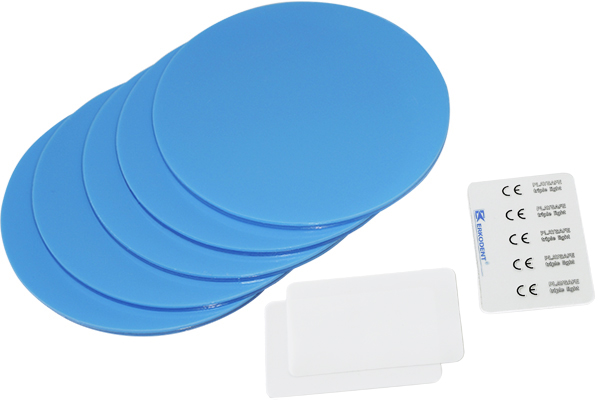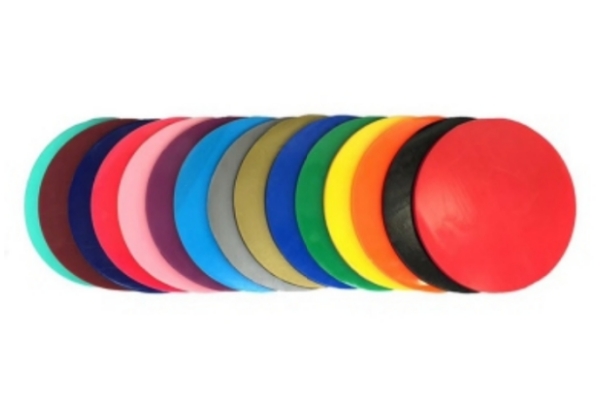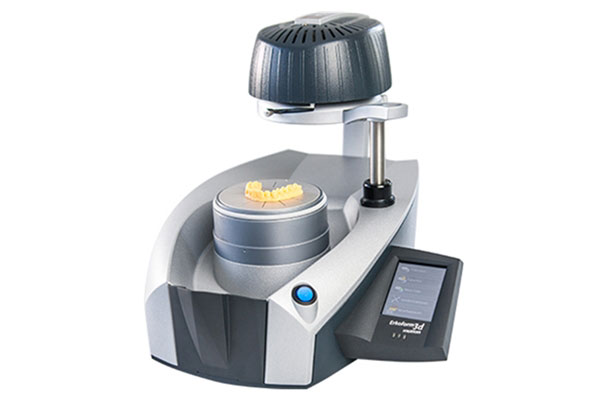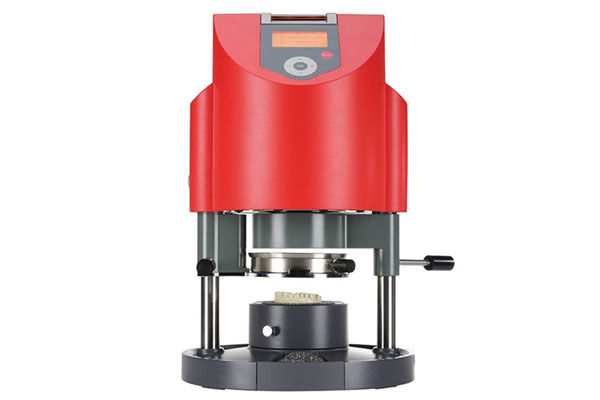Sports Guard Lab from China

Robust Sports Guard
Sports guards, also called dental mouth guards or mouth protectors, are worn during sports activities to protect the teeth. Injuries to the mouth, such as broken teeth, cut lips, and other wounds, can be prevented by wearing the device on top of the upper teeth.
A sports guard is an important piece of athletic device for people who participate in sports that involve falls, contact, or flying. This includes football, basketball, baseball, soccer, hockey, skateboarding, gymnastics, mountain biking — any activity that can cause oral injury. There are ready-to-use sports guards, but Robust dental only fabricates personalized ones.
Sports Guard Lab Equipment & Material
Robust Sports Guard Specification
| Product: | Sports guard |
| Plastic sheet (4mm/ 6mm thick): | Erkodent from Germany |
| Vacuum foaming machines: | Erkodent; Druformat |
| Way of manufacturing: | Thermoforming |
| Warranty: | 6 months |
Sports Guard FAQ Guide
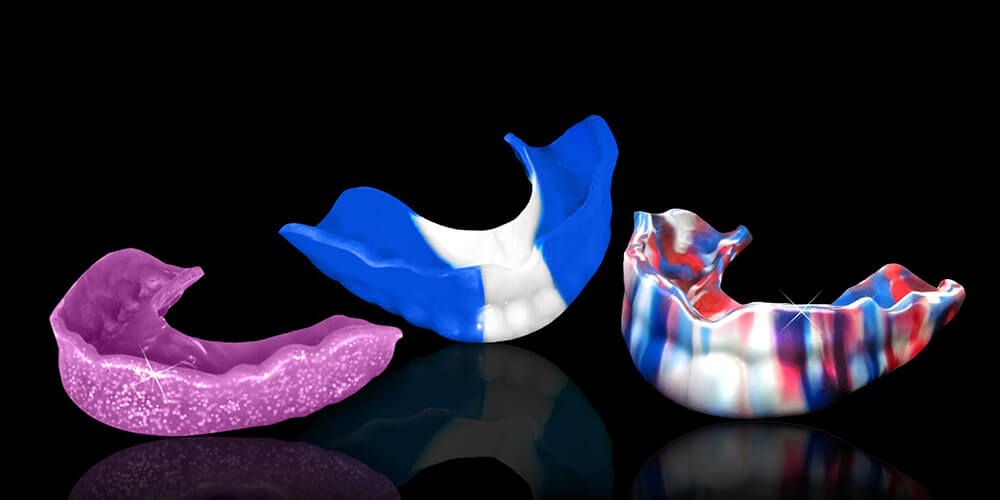
1. Why is it important to wear a sports guard?
The sports guard creates a collision barrier between the upper and lower teeth. They also form a protective barrier against external impacts to the mouth—such as a ball, puck, elbow, or against the face—acting as shock absorbers.
A sports guard can help protect your teeth and jawbone because it cushions blows to your face. In addition, they protect the soft tissues of the cheeks, tongue, and lips. They redistribute the force of the blow to the head to help reduce the severity of a potential concussion.
Sports mouth guards prevent thousands of dental injuries each year, the most common type of facial injury in sports. In particular, damaged teeth are one of the most common sports injuries and the most expensive.
It is not always mandatory for children to wear a mouthguard while exercising. But if your child enjoys sports, you can help reduce the risk of tooth injury by giving your child a sports mouthguard.
Risks of not wearing sports gear:
Without sports oral protection, athletes can suffer painful injuries to their lips, tongue, face, jaw, and teeth. Common sports injuries that occur without a mouth shield include health and dental emergencies such as:
- Cracked, broken, or knocked-out teeth
- Nerve and root damage
- Injuries to lips and cheeks, such as cuts and abrasions
- Jaw fracture
- Crown and bridge fracture
- Concussion
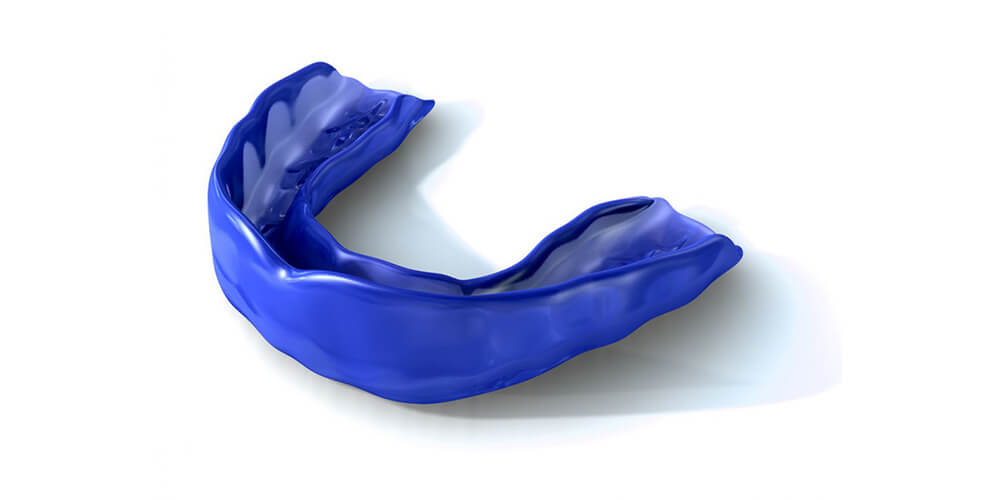
2. Who should wear a sports guard?
All athletes, especially young athletes, should wear a sports mouthguard when exercising, even if sports mouthguards are not a uniform requirement. Athletes who play high-impact contact sports such as soccer, hockey, football, lacrosse, baseball, softball, basketball, volleyball, boxing, wrestling, soccer, and martial arts are at high risk for facial, oral, and jaw injuries.
But even those who participate in non-contact sports and recreational activities, such as gymnastics, figure skating, skateboarding, rollerblading, horseback riding, and mountain biking, can benefit from the protection of oral guards. Wearing a sports mouthguard while performing these exercises can greatly reduce the risk of mouth and jaw injuries.
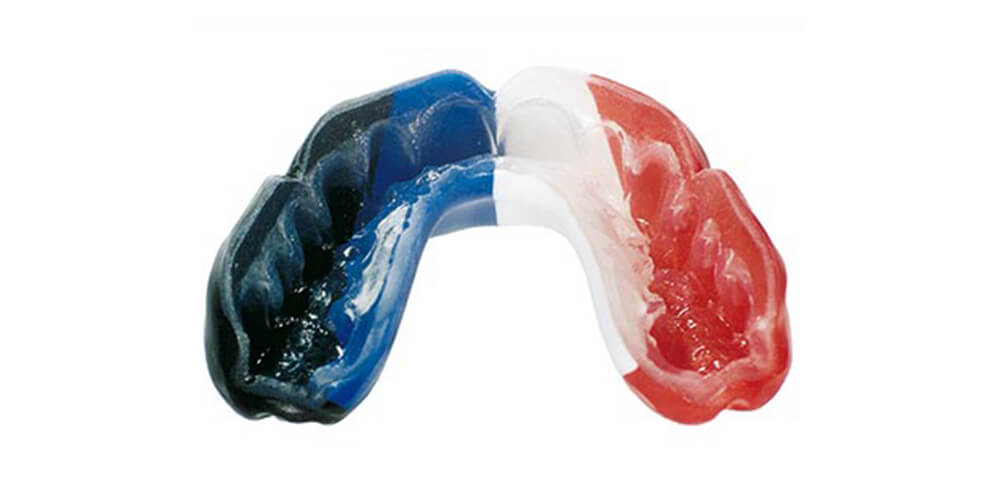
3. What are the Different Types of Sports Guards?
No matter which type of sports mouthguard you choose, it should be stretchy, tear-resistant, and comfortable. It should also fit without restricting your speech or breathing. There are three types of oral protection devices:
- Custom-made sports guards- These are individually designed and made by your dentist’s office or professional dental laboratory. Not surprisingly, they probably offer the most comfortable fit and best protection. Your dentist will make a dental impression on your teeth and build mouthguards on their models. Because they fit better and feel better, most athletes prefer custom made mouthguards. The downside is that they are also the most expensive.
- Boil and bite sports guards- These are pre-formed shapes that can be changed by boiling the sheath in water, then biting into the warm plastic to customize. They are available at many sporting goods stores and may provide a better fit than stock mouth protectors. Follow the instructions carefully and avoid using an unsuitable mouthguard.
- Stock Oral Protections – These are inexpensive, pre-prepared, and ready to wear. Unfortunately, they often don’t fit well. In addition to being bulky, they can make breathing and speaking difficult.
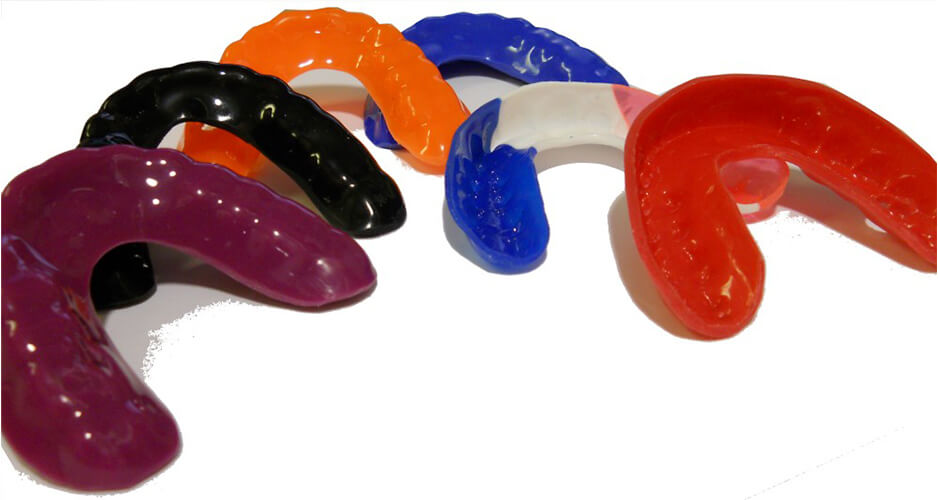
4. What kind of sports guard provides the best protection?
Custom-made sports guards give you the most protection, because they are specially designed to fit the unique shape of your upper teeth. While custom oral treatments are also the most expensive, they offer a premium level of protection for your smile that the regular stock or boil-and-bite oral treatments you’ll find at a sporting goods store can’t match. Also, keep in mind that the cost of repairing damaged teeth far exceeds the cost of a custom mouthguard.
If your child wears a sports guard or other fixed dental appliances, your dentist will also create a personalized mouth guard for your child’s lower teeth. Mouth guards for braces prevent injuries from broken wires and braces.
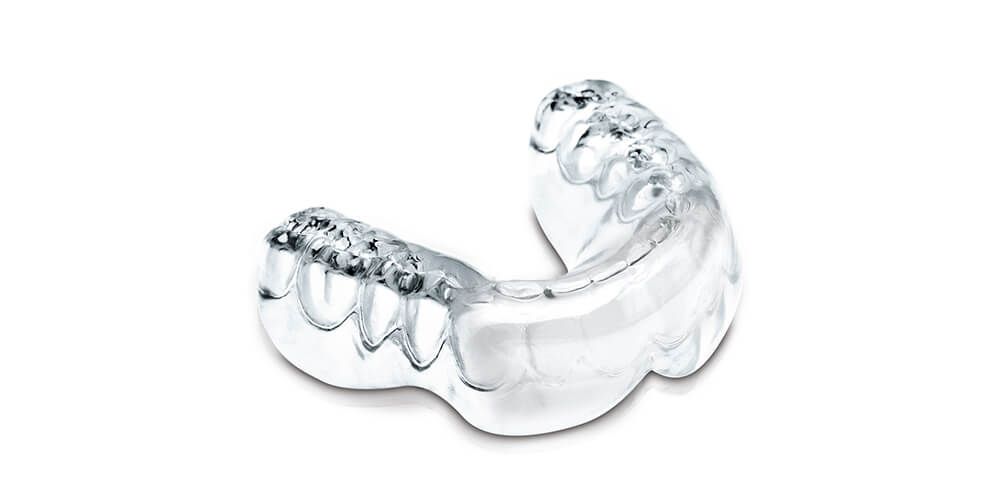
5. How long should sports guards last?
Ideally, sports mouthguards should be replaced after each season, as they wear out over time, making them less effective. Replacing teeth is especially important for teens, because their mouths continue to grow and their teeth continue to develop into adulthood. Many multi-sport athletes have new oral guards installed during their six-month dental check-ups.
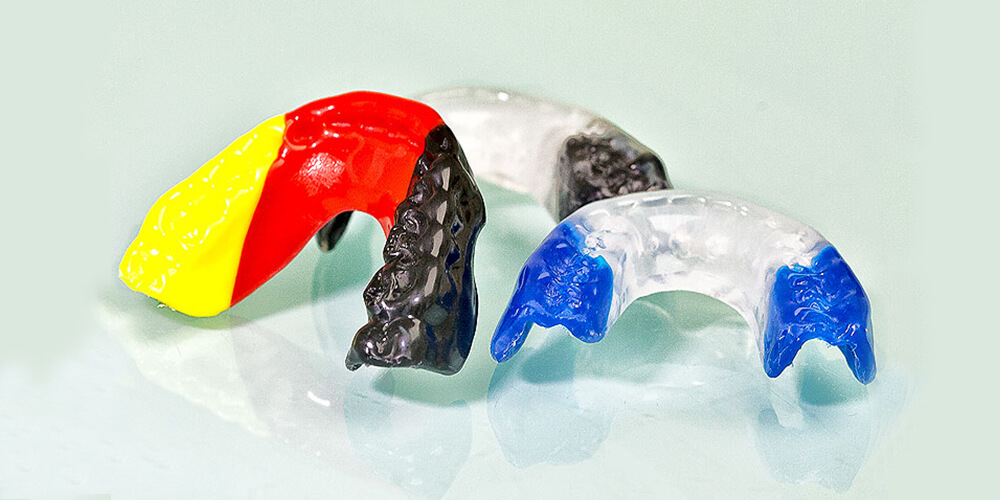
6. How to extend the service life of sports guards?
Taking care of your mouthguard can help keep your mouth clean and in good shape. If your sports guard wears out, it will need to be replaced, because they no longer provide the best protection.
Here are some tips for using a sports mouthguard:
- Keep away from heat sources, including hot water and the sun, to prevent it from melting or deforming.
- Avoid chewing your mouthguard.
- Rinse well before and after each use, brush lightly with a toothbrush and toothpaste after each use, and rinse well.
- When not in use, keep the oral guard in the protective case with proper ventilation.
- Do not remove or chew the sports sheath with your tongue
- If your sports guards fall on the floor or floor, clean them before putting them back in your mouth.
- Brush and floss your teeth before and after wearing a mouthguard.
- Do not share your guards with anyone.
- Wear a mouthguard when checking your teeth in a dental clinic. You can get a deep cleaning from your dentist.
- If your sports guard is loose or has cracks and fissures, take it to your dentist to have it checked. It may be time for a new one. If it doesn’t fit or is worn out, replace it for the best protection.
When it comes to sports protective gear, sports protective gear is often overlooked. But it’s one of the most important protective gear worth investing in. A sports mouthguard can help protect your mouth, teeth, jaw, and head, helping you avoid costly and painful dental damage.
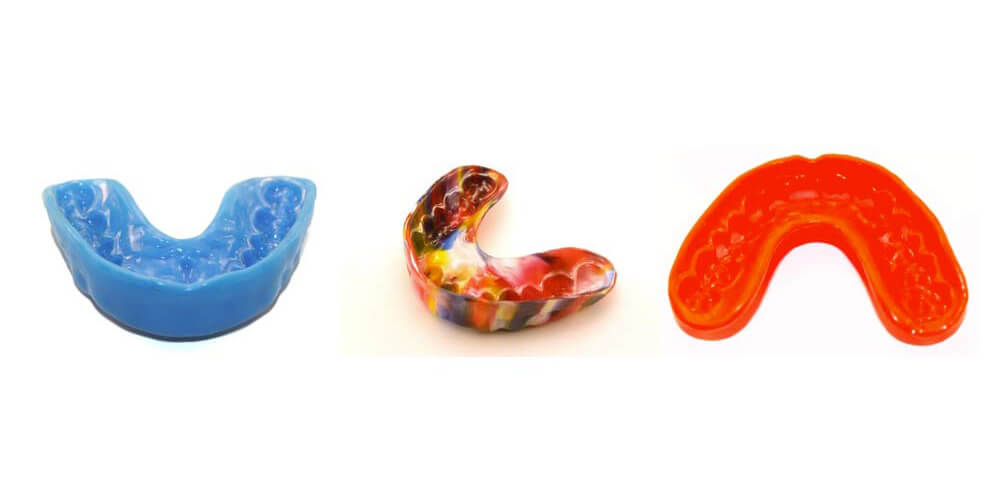
7. How can you clean a sports guard at home?
You should wash your sports guard after each use. There are many ways to clean your braces with what’s in your home.
Toothpaste
Soft-bristled toothbrushes and non-abrasive toothpaste can be used to clean your mouthguard. To avoid bacterial cross-infection, it is best to use a toothbrush alone. Avoid hard toothbrushes and abrasive toothpaste, which can damage your mouthguard.
Here’s how to clean your braces with a toothbrush:
- Rinse the mouthguard with cold water.
- Apply a little toothpaste to the toothbrush.
- Gently brush your braces.
- Rinse toothpaste.
- Allow the mouthguard to dry.
Soap and water
Another option is to use soap and water. Use a mild, alcohol-free soap to avoid damaging your braces.
Examples include:
- Antibacterial soap
- Castile soap
- Soap
A toothbrush is also required to use this method. To clean your mouthguard with soap:
- Rinse the mouthguard with cold water.
- Apply a small amount of soap to the mouthguard.
- Gently brush your braces with a toothbrush until soapy.
- Rinse the mouthguard to remove all foam.
- Let the mouthguard dry.
Mouthwash
Mouthwashes have antibacterial properties and are ideal for cleaning braces. Use alcohol-free mouthwash to avoid damage.
Here is a general usage of this technique:
- Rinse your mouthguard with cold water.
- Add a spoonful of mouthwash to clean the glass.
- Dilute with water until the liquid is enough to cover your braces.
- Soak the braces for 30 minutes.
- Remove and rinse with cold water.
- Let the mouthguard dry.
Baking soda
Baking soda removes debris and reduces odors.
Here’s a common way to use baking soda:
- In a clean bowl, combine equal parts of baking soda and water to form a paste.
- Dip a toothbrush into toothpaste. Brush your braces lightly.
- Rinse your mouthguard with cold water.
- Let the mouthguard dry.
- Hydrogen peroxide and vinegar
For a deeper clean, hydrogen peroxide and vinegar can be used. Both of these ingredients are natural cheap ingredients.
Here’s how to clean your braces this way:
- Rinse the mouthguard with cold water.
- Put it in a clean glass. Add enough vinegar to cover the mouthguard. Let stand for 30 minutes.
- Remove the mouthguard and rinse with cold water. Also, rinse the cup.
- Put the mouthguard back into the glass and add the hydrogen peroxide until it is completely covered.
- Let the mouthguard soak in the hydrogen peroxide for 30 minutes.
- Rinse your mouthguard with cold water.
- Let the mouthguard dry.
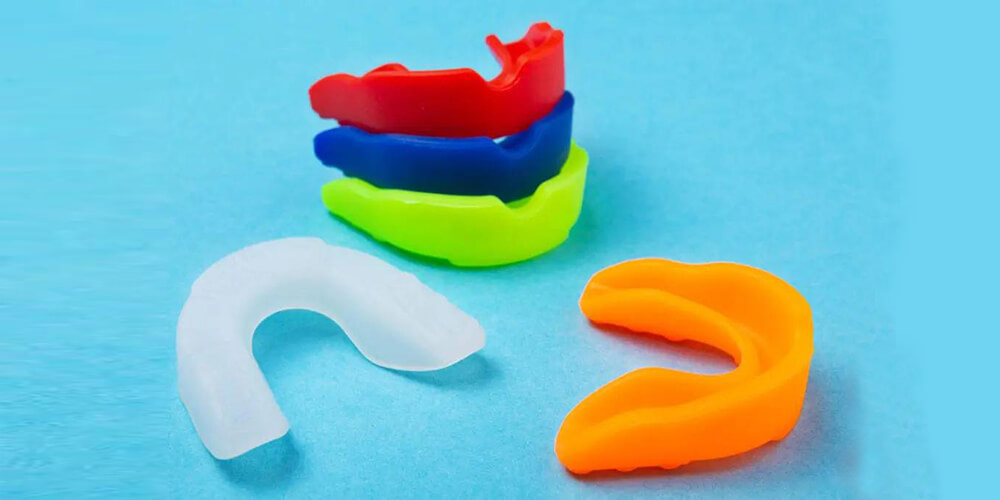
8. What factors need to be considered when choosing a sports guard?
To improve the wearing of braces, it is important to identify barriers to using them. Several factors are thought to hinder wearing sports guards:
- Poor reservation
- Intra-oral drying
- Nausea
- Interfering with breathing
- Interfere with speaking
- Athletes pride themselves on not wearing a sports guard
- Increase the cost of custom sports guard
- A customized sports guard, need to make an appointment with the dentist.
In the case of children, it is usually the parents who arrange for the sports guard to be provided and decide if and when they will be worn. Therefore, in order to increase the number of children wearing sports guards, it is necessary to educate parents about the necessity and benefits of using sports guards.
It’s also possible that dentists don’t know what type of sports guards to recommend to their patients, resulting in poor protection and poor compliance. To ensure maximum protection, dentists should be aware of the importance of capturing the fully functional depth of the groove and the most distal molars when photographing custom sports guards.
9. What is the difference between a sports guard and a night guard?
It is common for patients to confuse sports guards with nighttime guards. While both oral appliances protect the teeth, they work in different ways. Sports guards protect your smile during contact sports. Night guards prevent you from grinding or clenching your teeth while you sleep.
Since both contact sports and grinding can put you at high risk for broken teeth and other oral health problems, you’ll need to talk to your dentist about getting a dental protector that’s right for you.
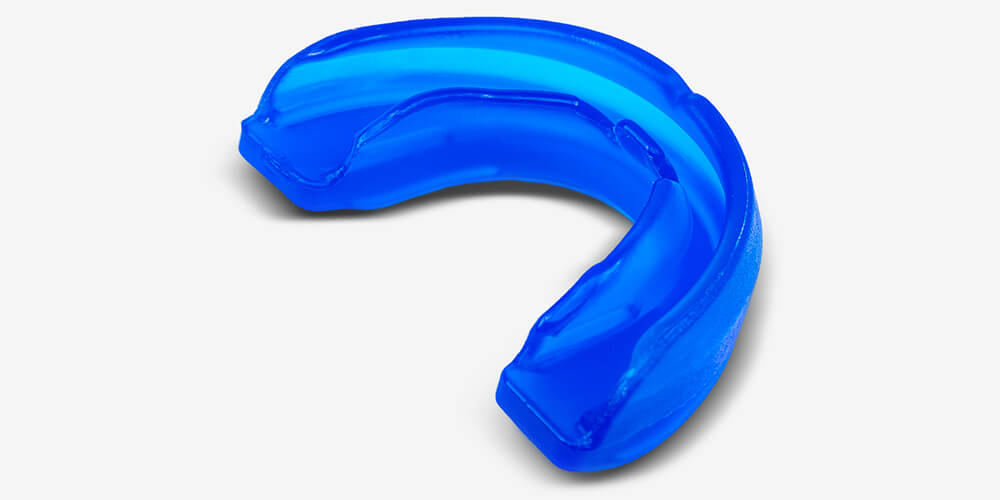
10. What effect does Sports Guard have on gums
If you use a sports guard correctly, it should actually protect your gums, not damage them. However, if you use a dirty, damaged, or ill-fitting mouthguard, you may damage your gums. Some people who are nervous about going to the dentist, or who don’t think they can afford it, wear cheap but “best-in-one-size” sports guards. These might offer some protection from meshing, but they don’t fit well, and they make it difficult for people to breathe properly while inside.
Also, they can be hard, and uncomfortable, and irritate the gums, putting them at greater risk of infection. There are also “boil and bite” sports mouth guards, which are often used by young athletes in contact sports. This is better than regular sports guards and can be used to treat bruxism. However, if you grind your teeth, they are thicker and heavier than the sports guards your dentist usually provides, so they’re not ideal.
Custom sports guards are a more expensive up-front investment, but they are more comfortable and gentle on the gums. Custom sports guards allow you to breathe comfortably and even talk inside. You may need to refill every year, but it’s worth the money for something that’s friendlier to the delicate tissues of your mouth.
11. Can I wear a sports guard if I have braces?
Of course, this is highly recommended, as slapping the face can damage brackets and other fixed orthodontic equipment. Braces are also a barrier between the braces and the soft tissues of the mouth, helping to prevent damage to the cheeks, gums, and lips. If you or your child have braces, talk to your dentist or orthodontist to get a sports guard.
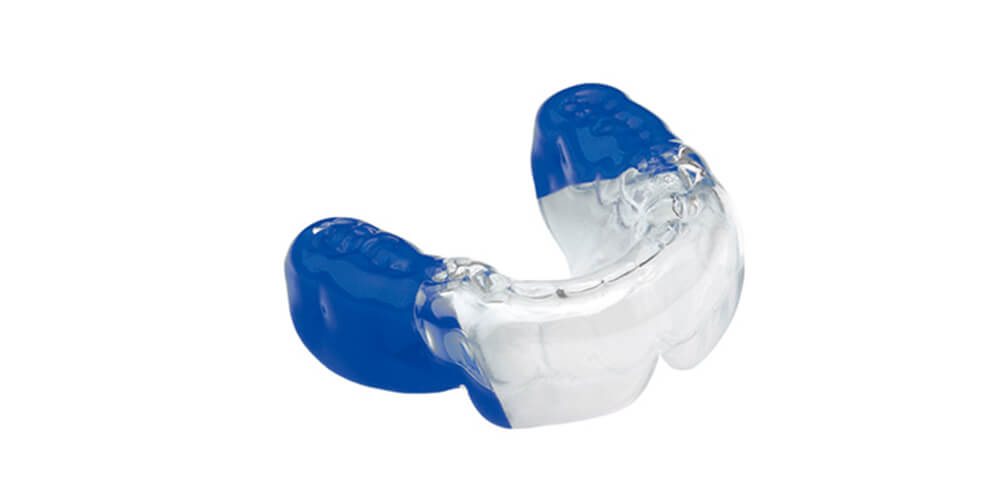
12. Can I use chemicals to clean my sports mouthguard?
If you feel your sports guard needs a deeper cleaning, try a non-abrasive denture cleaner. Typically, over-the-counter denture cleaners contain sodium hypochlorite, a chemical bleaching agent. Use according to product directions and are safe for you and your sports guard.
It’s worth noting that OTC cleaners may contain synthetic fragrances and artificial dyes. If you’re sensitive to fragrance or care about the ingredients, chemical cleaners may not be the best option. Don’t soak your sports guard in the cleaner for too long. This can damage your sports guard.
